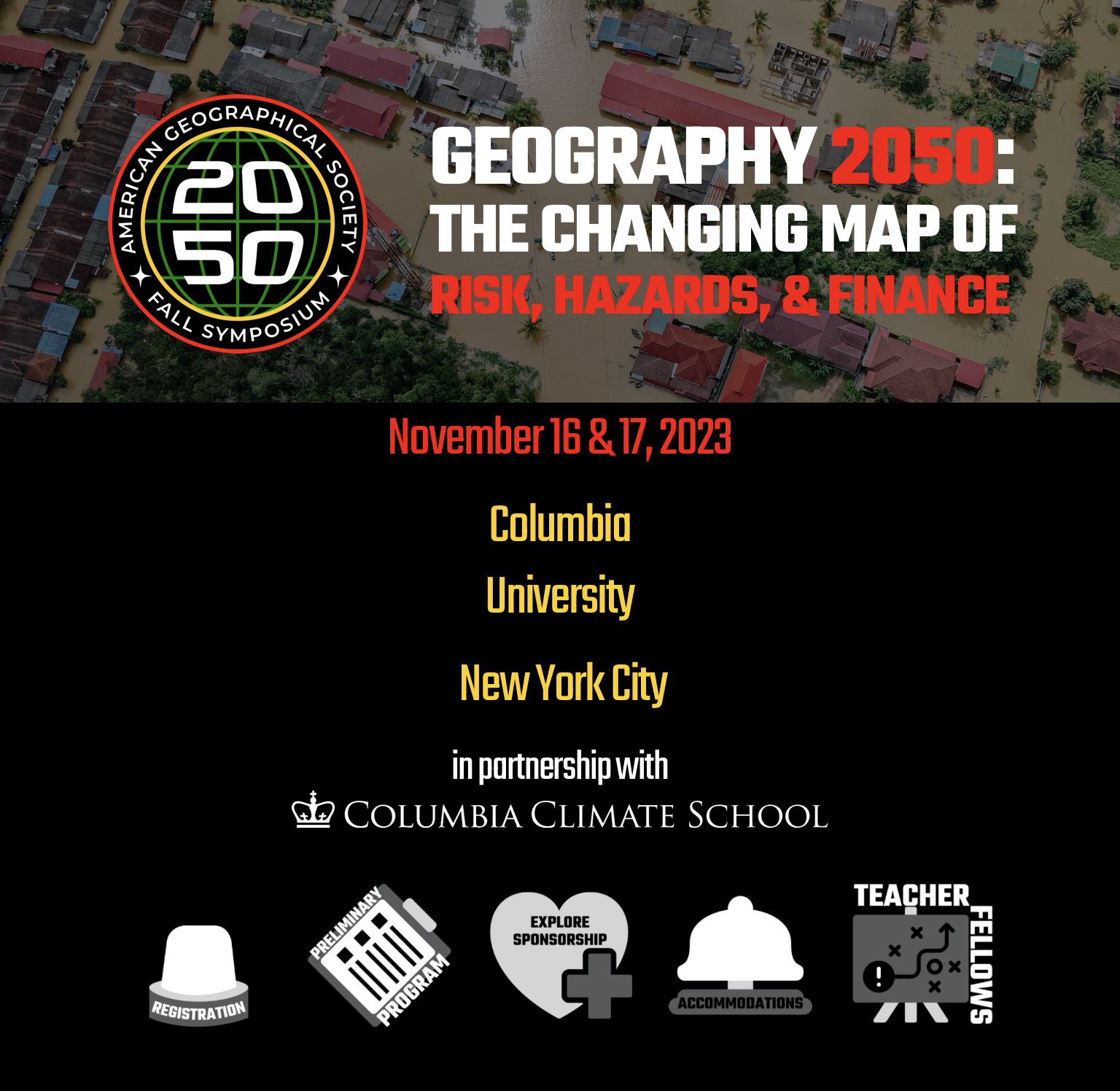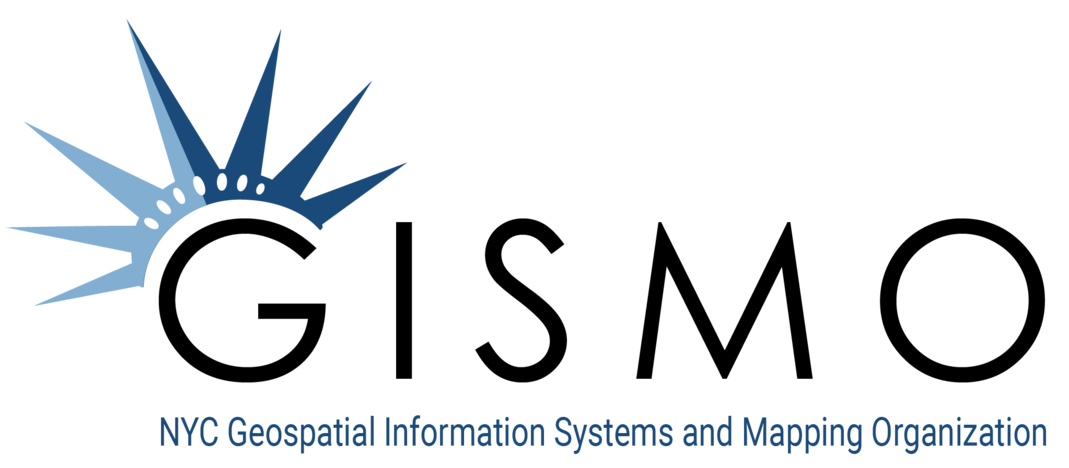Dear NYC GISMO Members:

You are cordially invited to the American Geographical Society’s annual fall symposium with partner Columbia Climate School – Geography2050: The Changing Map of Risk, Hazards, and Finance – focused on climate change and its mappable risks and hazards, pertinence to the financial and insurance sectors, and national security implications.
Geospatial technology is critical in addressing climate chance: through exposure mapping techniques, risk modeling and monitoring, and other innovative GiS techniques, the industry can drive efforts to connect data analysis to climate-related hazards and provide a holistic picture of the environmental dangers that face us all. Being close to the geospatial data means being close to the pulse of our world’s most pressing challenges. We welcome NYC GISMO to join the conversation at our symposium on November 16 and 17, 2023 at Columbia University! You can register now by going to Geography2050.org. We have a special price for GISMO members: you can access it by clicking “Non-AGS Affiliate” and entering code 23-GISMO.
This symposium features environmental leaders who will discuss a range of geographical and geospatial topics related to the evolving risk landscapes of our changing climate. Most notably. the event will involve a conversation with Ms. Deanne Criswell, Administrator of the Federal Emergency Management Agency (FEMA) and former commissioner of NYC’s Emergency Management Department (NYCEM). She has been a strong proponent of GIS in general, but particularly in the mapping of underground infrastructure, especially during her time at NYCEM. NYCEM now has the premier GIS operation of any municipal or county emergency management in the US. and likely in the world. Her presence and experience highlights the importance of GIS use in risk management both in New York City and around the world. Attendees will be able to learn firsthand about our speakers’ perspectives leading geographical and geospatial organizations, while connecting to a wider geo-professional community, including: geospatial technology companies, climate
researchers and academics, climate finance and insurance professionals, and policymakers.
Geography2050 involves plenary sessions, lightning talk sessions, welcome/closing receptions, and plenty of opportunities for professional networking. The talks will provide a wide array of meaningtul perspectives with representation from diverse sectors of the geo-community: government/policy, geospatial technology, finance/insurance, and scientific research academia. The networking at the event has the potential to be as interconnected as geography itself is interdisciplinary. We look forward to welcoming you, your insights, and vour eagerness to advocate on issues of importance to the GIS industry!

